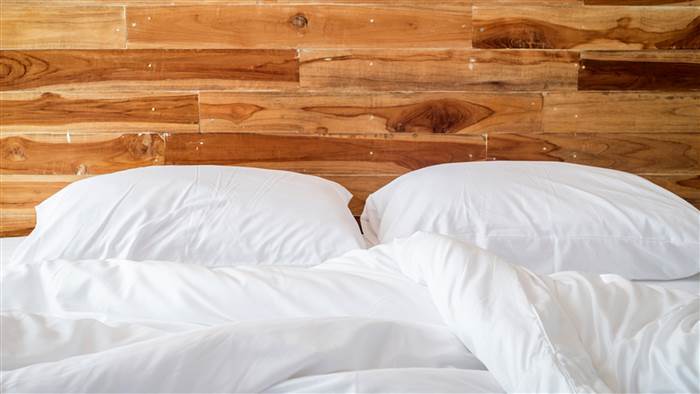5 simple ways to treat snoring
Snoring while sleeping is a very bad habit that makes your loved ones sleep hard, feel disturbed and this is also the cause of harmony in the relationship of spouses at risk of collapse. After a hard working day, you will not be able to keep calm if the person lying next to you snores and this situation occurs from day to day.
Many people often overlook snoring, consider it a problem that has no effect on health. However, according to the researchers, snoring may be linked to many serious symptoms that unfortunately many people are not aware of.
Obstructive sleep apnea (OSA) , also known as sleep apnea syndrome, is a blocked airway condition during sleep that reduces the amount of oxygen in the body and increased CO2. This change in about 10 seconds causes the brain to know that breathing has been stopped, which forces the body to wake up for a short time to breathe again. This is one of the most common health problems common in snoring people.

Snoring is the cause of sleep apnea syndrome
For people with OSA syndrome, this process can occur in a few minutes, often appearing several times each night and is thought to be due to the effects of excessive daytime sleep. While this habit is obvious to those who work without office hours or driving, it also causes some negative signs for the body such as hypertension or cardiovascular problems.
Here are 5 simple tips to help you treat snoring to get better sleep and avoid disturbing others.
Do not drink much alcohol
Many people believe that drinking alcohol will help sleep better, simply because the more alcohol you drink, the easier it is to get drunk and get to sleep. However, the reality is not so. Even if you sleep well, your body is uncomfortable, especially when drinking alcohol close to bedtime.

Stop drinking alcohol now will help you treat snoring effectively
Putting too much alcohol into the body makes breathing difficult, the amount of inhaled air passing through a narrower area causes the surrounding tissue lining to vibrate to create a sound, thereby causing a sound. snoring.
Apart from this phenomenon, alcohol also disrupts REM sleep, causing us to sleep deeply and not feeling awake after waking up.
Stop smoking

Smoking causes swelling, pneumonia and loud snoring when sleeping
Snoring and sleep apnea syndrome are two of the many harmful effects of smoking. Cigarette smoke will lead to swelling in the airways and bronchitis, making it harder to breathe while sleeping and snoring.
Eat healthy and exercise regularly

A reasonable diet combined with daily exercise is the ideal solution
Overweight people are also very prone to snoring and suffer from sleep apnea due to thick fat tissue around the neck and mouth, causing airway obstruction. Therefore, build a reasonable diet, ensure adequate nutrition and exercise regularly to prevent snoring and minimize unwanted health problems.
Drink a lot of water

Drinking plenty of water will help keep your body moisturized
Many people have a habit of drinking very little water before going to bed for fear of interrupting sleep at midnight. However, dehydration can cause the throat and nasal passages to become more sticky, leading to obstruction to breathing. Therefore, make sure you always provide enough water for your body before going to bed.
Keep the bed clean
Dirty beds can cause many health problems and snoring is one of them. After a period of use, dust can be accumulated in pillows, sheets or blankets. For people with allergies, this is not good because allergies such as allergic rhinitis can cause nasal congestion, which can contribute to snoring and affect sleep quality. Swelling of the nasal mucosa and throat affects the passage of air through the nasal passages, especially at night.

Always keep your bed clean to avoid dust and dirt that makes it difficult to breathe
To prevent this, you need to keep your bed clean and well-ventilated by washing the sheets once a week and washing them regularly (can be exposed to the sun after a few days of use and cleaning. after a few months.